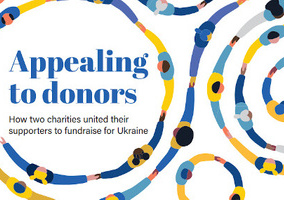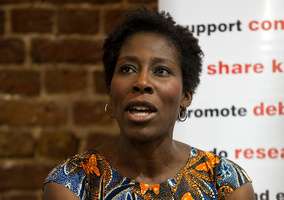In 2021-22, the Robertson Trust marked 60 years since being established as an independent funder by the three Robertson sisters – pioneering women of business and philanthropy who inherited their grandfather’s whisky business. Today, the trust derives most of its income from a dividend on the profits of Edrington, the global drinks company headquartered in Glasgow.
In 2020, we published a 10-year strategy focusing our resources on two of the most significant challenges in Scotland – poverty and trauma. We do this through grant funding, non-financial support to charities and influencing policy and practice change. We contribute to change via four thematic priorities: education, financial security, work pathways, and emotional wellbeing and relationships.
Last year was the first full year of grantmaking via Our Funds programme. There is no start or end date for applications. Over this period, we made 453 awards totalling £16.6m. In addition, we began to develop programme awards where we fund work with the highest potential for delivering big change that lasts – activities with clear, demonstrable potential to lead to significant impact on poverty and trauma at scale, either in general, for particular people or places.
Through our Partners in Change initiative for larger charities (£2.5m), we support six approaches to change spanning our thematic priorities. We invest a similar amount in a scholarship programme Journey to Success, which currently supports more than 700 students from a range of backgrounds to stay in higher education.
In 2022-23, in response to the “cost-of-running” crisis facing charities, we made top-up payments of at least 10% on the current year’s award for all organisations funded under our current strategy, using a sliding scale where smaller charities received the highest percentage increase.
We are committed to the Institute of Voluntary Research’s Open and Trusting grantmaking principles which challenge us to continue improving and benchmarking. Responding to consistent messages from Scottish charities, we encourage unrestricted funding requests to meet core costs and provide multi-year funding – for three or more years.
We have awarded over £300m across Scotland since 1961.
We recognise that in order to advance our mission on poverty and trauma, we have to work with a diverse range of organisations. Through Our Funds, our minimum grant size is £300 available to constituted groups and small registered charities. Our maximum grant size is £50,000 per year for up to five years. Eligibility is for organisations with annual income up to £2m. Our Programme Awards are open to registered charities, assetlocked community interest companies, housing associations and credit unions. We can fund feasibility, demonstration, research focused on change and advocacy, policy, campaigning and influencing activity.
We want to build stronger relationships with our grant holders, to develop our knowledge of how we can best contribute to making change happen. By having a closer relationship with organisations, we can identify common themes and trends affecting the people, places and partners we serve. Their time is valuable, so we try to ensure the contact we have with them is proportionate. We are working to offer our grant holders opportunities to come together with other funded organisations, to share learning, good practice and build purposeful connections.
The application process and timescales vary depending on the type of award. Typically, applicants can expect to have a decision within eight to 12 weeks.
We want the process of applying for funding to be straightforward. We encourage all applicants to read our guidance and funding criteria, and to use clear and concise language. Try to think from a beneficiary perspective.












